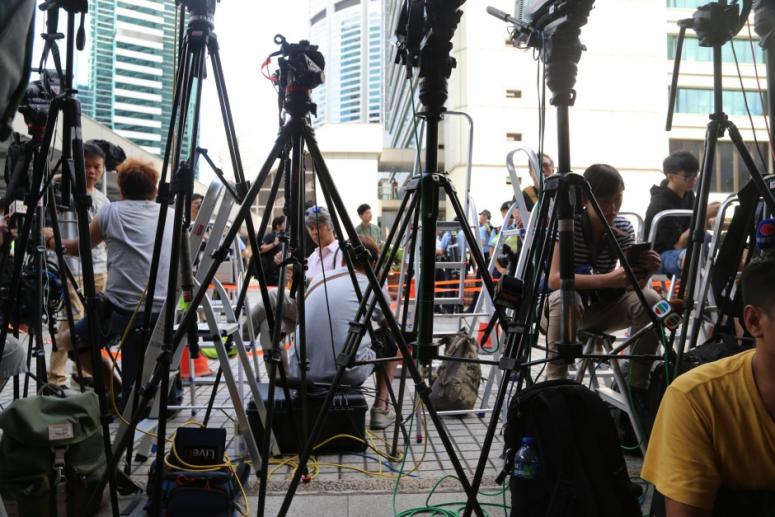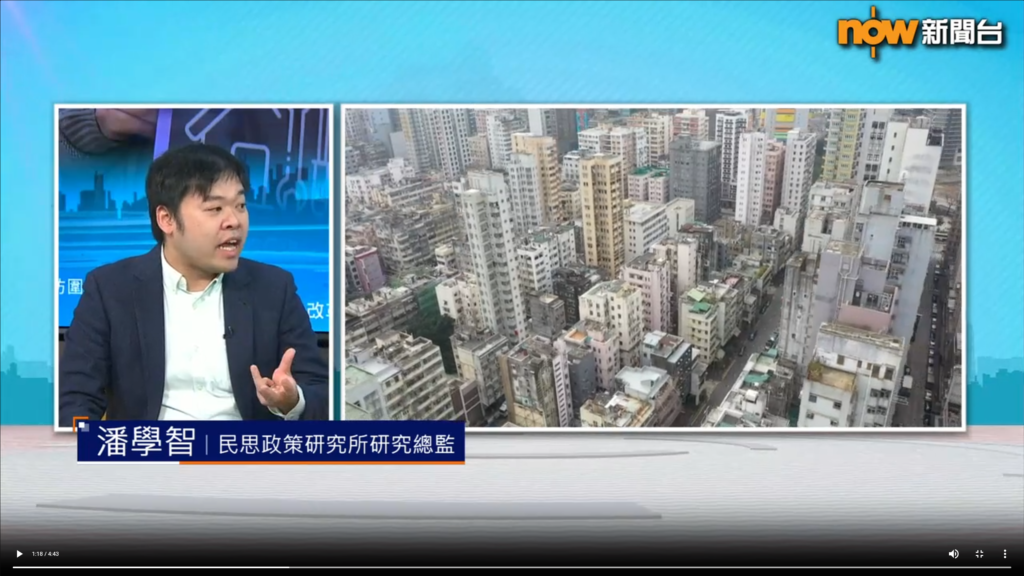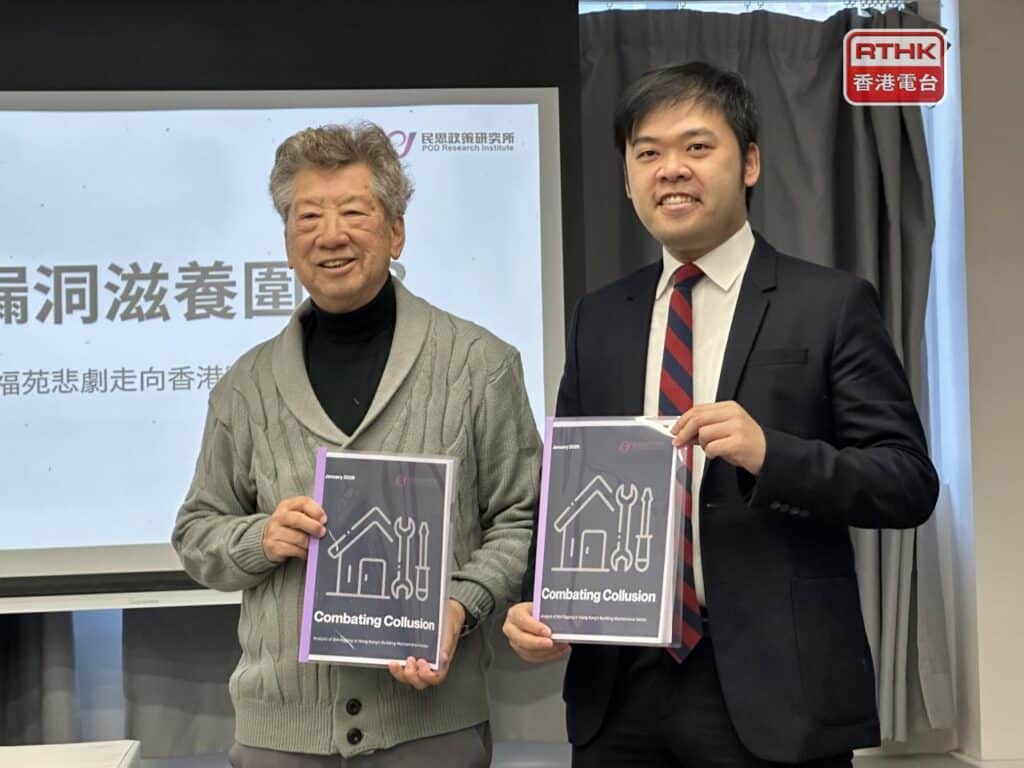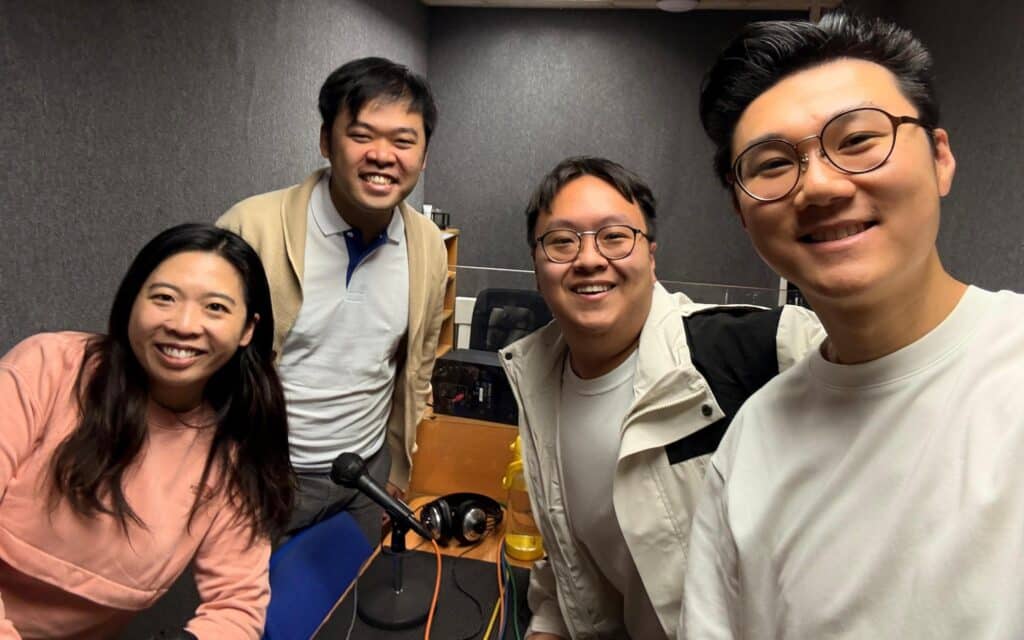Following the official liquidation and dissolution of the Civic Party last year, the Democratic Party Central Committee also decided a few days ago to set up a team to follow up on the dissolution process. In addition to political space, the survival of centrists in Hong Kong's political arena has attracted much attention, and fiscal constraints are another test. As far as I know, one of the self-proclaimed centrist organizations, Democratic Ideas, is currently conducting a research project with government resources. It is conducting in-depth interviews with stakeholders such as industry professionals, scholars and experts on the changes in press freedom in Hong Kong in recent years. These funded projects can alleviate financial pressure.
Founded in 2015, Democratic Ideas is positioned as a centrist think tank. In recent years, it has sent representatives to participate in the Legislative Council and District Council elections many times but all have failed. Despite the election defeat, Democratic Ideas is still maintaining operations by fundraising and taking on research project funding. For example, they have recently been commissioned by the Steering Committee on Promotion of the Constitution and the Basic Law under the Constitutional and Mainland Affairs Bureau to carry out a funded project entitled "Study on the Impact of Article 23 of the Basic Law on Press Freedom".
It is understood that the research project has invited some frontline journalists, managers, scholars and other stakeholders to conduct in-depth interviews. The content revolves around everyone's views on press freedom in Hong Kong after the implementation of the Hong Kong National Security Law and the "Safeguarding National Security Ordinance", including whether they are worried about breaking the law when doing editorial work, whether they will increase self-censorship, and whether they feel that the level of press freedom is less than before. The information of the interviewees will be kept confidential and the research report will eventually be submitted to the authorities for reference.
When asked by the author, Poon Hok-chi, co-convener (research) of Democratic Ideas, said that the project was commissioned by the authorities around August last year. The original bidding conditions were that as long as it was related to the promotion of the Basic Law and the Constitution, some of the projects funded during the same period were promotional activities, such as the Youth Forum, and there were also other research projects. There are usually multiple organizations bidding for a project, and whether it can stand out depends on whether the authorities' judges believe that the plan meets the needs of social development and whether the research topic has policy importance. The final research report is mainly used for internal reference by the authorities, and whether it will be published publicly depends on the decision of the authorities.
Pan Xuezhi pointed out that the operation of Democratic Ideas mainly relies on fundraising and applying for research funding from the government, hoping to diversify its funding sources. However, due to recent economic environment problems, donations from the business community have not been as much as in previous years. "The water pipes are very tight and the funding sources have narrowed." Therefore, they also hope to obtain more government-funded projects.
He also believes that think tanks have a better sense of policy application and a better grasp of social context than universities and other academic institutions. Their "research will be more down-to-earth" and they can provide the government with more practical research results.
It is undeniable that the economy has taken a turn for the worse in recent years, and many private enterprises and individuals have fallen into financial difficulties. Even if they want to strongly support think tanks and some centrist groups, they may be unable to help. The New Thinking political group, which also claims to be centrist, also did not hold a fundraising dinner last year for fear that fundraising was too frequent and would scare off the business community. This year, the party’s only Legislative Council member, Tik Chi-yuen, will also face the test of a general election. If he fails to be re-elected, he may have to think about how to transform himself in order to survive.



